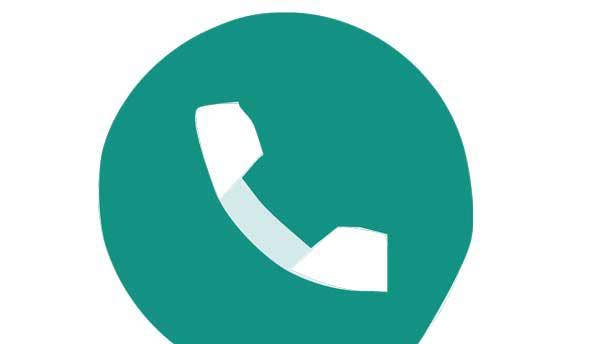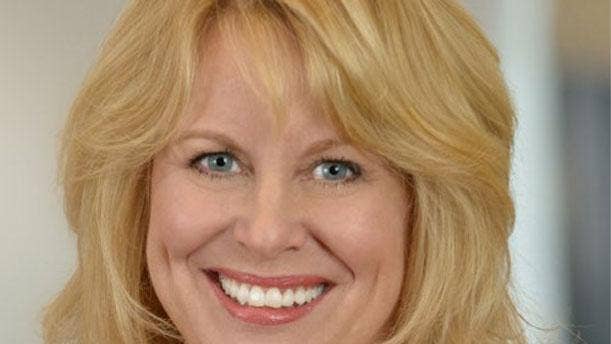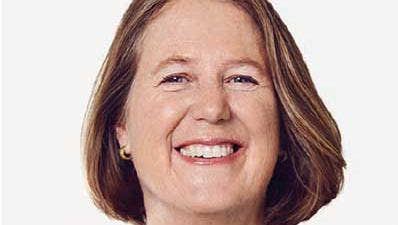The 10 Biggest Google Cloud News Stories Of 2018

Making Headlines
2018 proved to be a busy year for the industry's third-largest cloud giant. Google spent its time injecting more artificial intelligence and machine learning into Google Cloud Platform (GCP), going after more enterprise customers, and bringing on a new channel chief.
But not all news was good news. Google dropped out of the bidding war over the highly competitive, multibillion-dollar JEDI cloud contract and the company also saw a couple of high-level departures, including the surprising announcement that Google Cloud CEO Diane Greene would be stepping down at the end of the year.
From the introduction of new services and hires, to cloud outages and staff departures, here are 10 of the biggest Google cloud news stories of 2018.

10. Google Reveals Google Voice For The Enterprise
Along with its AI and machine-learning updates to its flagship collaboration portfolio of products, G Suite, Google also unveiled Google Voice for the Enterprise, a long-awaited telephony offering for businesses.
While Google Voice had been used by many consumers for years, the cloud giant released the beta version of its Google Voice for the Rnterprise through its G Suite Early Adopter program in July. The offering is powered by AI and lets administrators set policies and assign numbers to users. The product also includes time stamps and voicemail transcription.

9. G Suite Gets An AI, Machine-Learning Boost
Google took to its Google Next conference in July to reveal that G Suite, its portfolio of collaboration solutions, had been given a shot in the arm with AI and machine-learning updates.
The updates included a new investigation tool that lets administrators gather and identify security threats such as malicious email in real time; Data Regions for G Suite, an offering for specific G Suite apps that lets primary data move freely and without impact to performance; and Smart Reply for Hangouts Chat, a machine-learning feature that can fill in the blanks for Hangouts Chats.
G Suite is used by more than 1.4 billion users today, with more than 4 million businesses relying on Google's collaboration tools.

8. Google Runs Into Privacy Issues Around Location Tracking Practices
Research emerged in August finding that certain Google applications are storing location data, even after consumers believed they had turned Google location tracking services off.
Google's behavior on Android and iOS devices, which was first revealed by an Associated Press investigation and later confirmed by computer science researchers at Princeton University, found that despite users turning off location tracking using the privacy settings on their mobile devices or on the web, certain applications take time-stamped snapshots of the user's location and store that data to be used later when the user performs a search or opens specific applications. After the revelation, Google changed its help page on location history to read that "some location data may be saved as part of your activity on other services, like Search and Maps.

7. Google Reportedly Building Private Cloud Offering Proven False
A report published in September by The Information said that Google cloud services was reportedly building and testing custom-designed devices for private data centers. A spokesperson for Google, however, confirmed to CRN that the cloud giant is "not building customized appliances for external sale."
The report cited two people with knowledge of the project that Google is going beyond facilitating hybrid cloud computing by building computers that will combine server, storage and networking functions for a group of large customers to run in their private data centers. Google, for its part, said that it won't be competing with its partners in the private cloud business, such as Nutanix.

6. Google Cloud Outage Impacts Popular Third-Party Apps
On a hot summer day in July, Google experienced an outage that slowed down or stopped several popular services that run on top of GCP, including Spotify and Snapchat.
The company quickly confirmed the outage after users took to social media to complain. Google said the outage was caused by a networking issue, specifically a problem with its global load balancers. The issue was resolved later that same day.

5. Google Names New Channel Chief
Google in July crowed a new channel chief, former GE Digital executive Carolee Gearhart. Gearhart filled in for former channel chief Bertrand Yansouni, who stepped out of that role after only a brief tenure of less than one year. Google's channel chief seat sat empty for 10 months after Yansouni's departure.
Gearhart, who served as chief ecosystem and channels officer for GE Digital for a year, also was a senior vice president of customer success and global channels for Adaptive Insights. Today, she is responsible for Google Cloud Platform, G Suite, and the Chrome channel business globally.

4. Google Backs Out of Saudi Conference
On the heels of the then-disappearance of Washington Post columnist Jamal Khashoggi, several of the world's largest tech giants backed out of attending the Future Investment Initiate (FII) Summit, also known as Davos in the Desert, which is held in Saudi Arabia in October and hosted by Saudi Crown Prince Mohammad bin Salman bin Abdulaziz Al Saud.
Google announced earlier that month that its cloud leader, Diane Greene, would not be attending the conference. Greene wasn't alone. The CEOs of Blackstone Group, BlackRock, JPMorgan Chase, Uber and Ford Motor Co. also withdrew from the event.

3. Google Drops Out Of Running For Multibillion-Dollar JEDI Cloud Contract
The JEDI (Joint Enterprise Defense Infrastructure) initiative, a multibillion-dollar cloud contract that has been up for grabs for months, has sparked a heated competition between some of the industry's biggest cloud giants, most notably Amazon Web Services and Oracle. But the winner-take-all nature of the award has also garnered a great deal of criticism from tech giants.
Google in October backed out of the bidding war for the contract after releasing a statement that criticized the government's approach. "Had the JEDI contract been open to multiple vendors, we would have submitted a compelling solution for portions of it. Google Cloud believes that a multi-cloud approach is in the best interest of government agencies, because it allows them to choose the right cloud for the right workload," according to a spokesperson for the company.

2. Google Cloud COO Diane Bryant Leaves
Reports emerged in July that Diane Bryant left the company after serving as the COO of Google Cloud for less than a year under Google Cloud CEO Diane Green. Google confirmed the news, saying that it was "grateful for the contributions she made while at Google" and that the company wishes her well in her next pursuit.
Bryant, a longtime Intel executive before joining Google, was thought of as a potential candidate for Intel's vacant CEO job at the time, which is currently being filled by the company's former CFO, Robert Swan. Bryant has so far not resurfaced at any other tech firm and her LinkedIn has not been updated since her appointment at Google.

1. Google Cloud CEO Diane Green Steps Down
In an unexpected move, Google Cloud CEO Diane Greene announced in November that she would be stepping down at the end of the year.
Replacing Greene will be former Oracle president and product leader of its cloud division, Thomas Kurian. In a blog post about her departure, Greene said that she will be available as needed after January, and that she interviewed Kurian herself for the position of Senior Vice President of Google Cloud. However, reports have surfaced that Greene is leaving the company because of disagreements over strategy. Solution providers in November told CRN that Greene failed to build out a robust ecosystem of partners, but that she was successful in helping Google take on more enterprise customers.